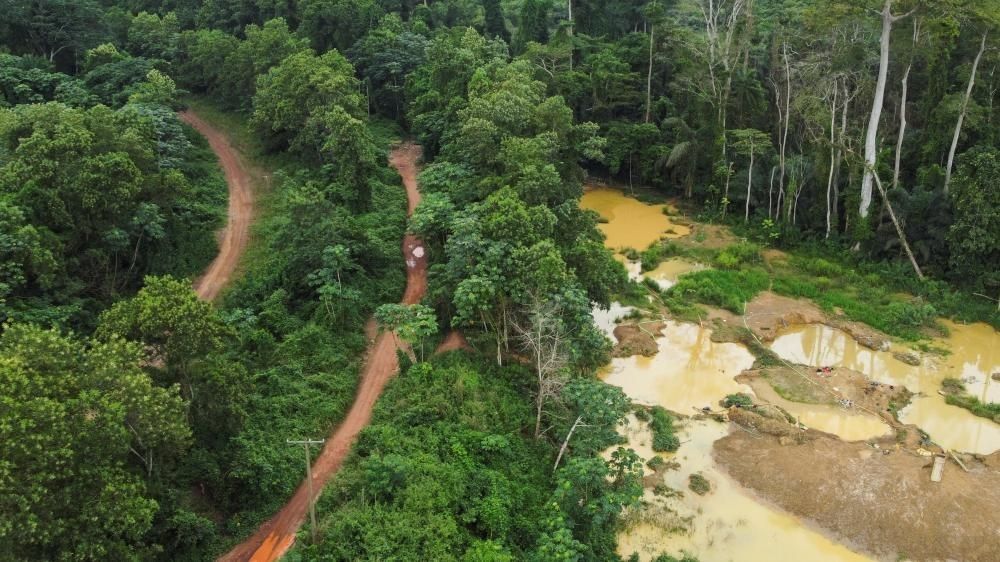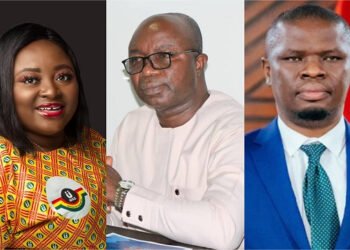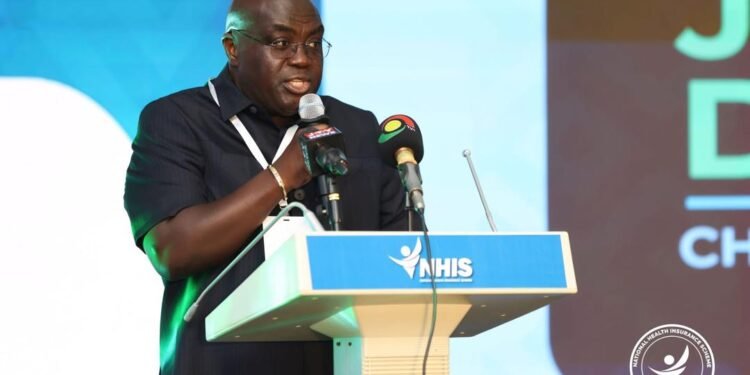The ongoing destruction of Ghana’s lands, water bodies, and forests due to illegal mining (galamsey) continues to expose the nation’s systemic failures.
Recent developments, including a court decision granting bail to alleged illegal miners and an order compelling the Forestry Commission to return seized equipment, have sparked widespread public outrage.
Columnist and activist Raymond Ablorh, in a statement, sharply criticized the nation’s inability to combat this existential threat.
His concerns reflect a growing sentiment that the very institutions tasked with protecting Ghana’s environment—security agencies, the judiciary, and regulatory authorities—have been deeply compromised.
According to Ablorh, those who should be enforcing the laws against illegal mining are, in many cases, active participants in the destruction.
“Our elites simply are finding it difficult to stop themselves; they’re at the center of the prevailing destruction. Instead of stopping, they buy water from foreign countries to drink and build homes in foreign lands.”
Raymond Ablorh, Columnist and Activist
His impassioned call for President John Dramani Mahama to declare a state of emergency and take decisive action against illegal miners underscores the urgent need for a radical approach.
Systemic Complicity and Elite Hypocrisy
The complicity of state actors in illegal mining has been an open secret for years. Reports have frequently surfaced of government officials, military personnel, and political figures benefiting directly or indirectly from galamsey activities.
According to Ablorh, this has led to a situation where efforts to clamp down on the menace are half-hearted, selective, or outright compromised.
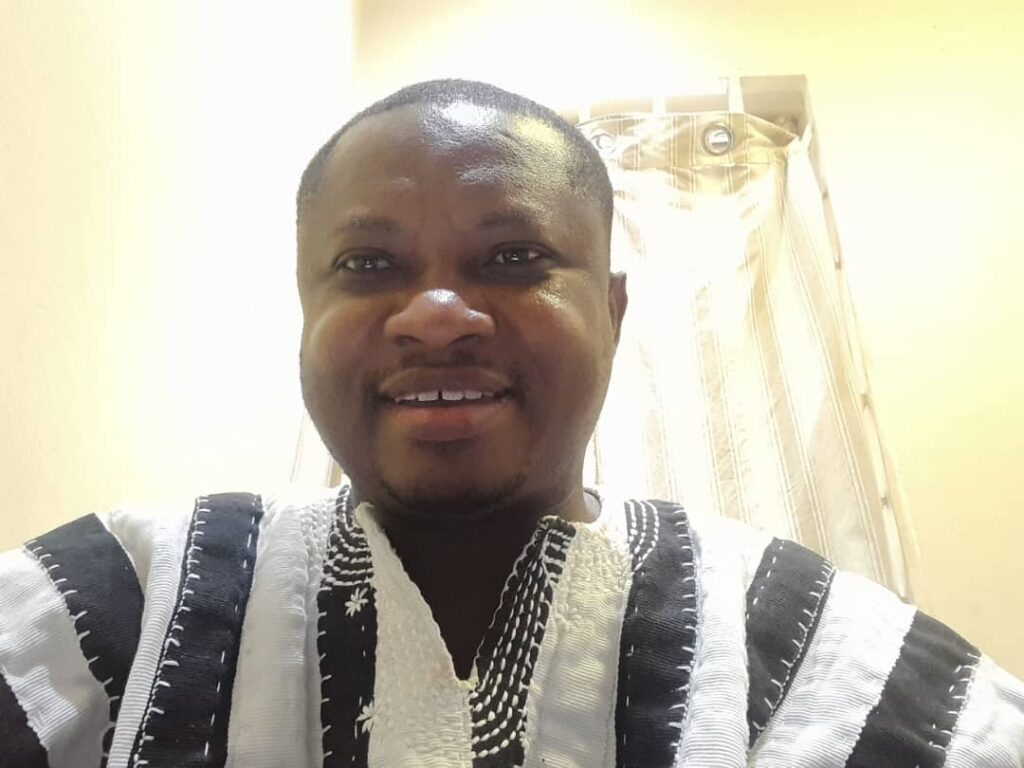
The hypocrisy of the ruling elite in addressing this crisis has not gone unnoticed, with Ablorh asserting that while they pledge to protect the country’s natural resources, many of them live in luxury, removed from the consequences of environmental degradation.
“The very people who must develop our country are destroying our country in search of wealth. At this stage, those with conscience must converge to stop those without conscience. Let’s deal ruthlessly with these criminals among us with the same energy and force we need to fight our fiercest enemies”.
Raymond Ablorh, Columnist and Activist
A recent Enchi District Court ruling has exacerbated public frustration. The court’s decision to grant bail to alleged illegal miners and compel the Forestry Commission to return their equipment has been met with disbelief.
Critics argue that this sends a dangerous signal—that illegal miners can operate with impunity, knowing that the legal system may ultimately shield them from accountability.
For many Ghanaians, this ruling is another example of how the judiciary has, at times, failed to act in the public interest when it comes to environmental crimes.
NDC’s Backtrack on LI 2462
Beyond the failures of the previous NPP government in the fight against the activities of illegal mining, legal practitioner and activist Osagyefo Mawuse Oliver Barker-Vormawor has taken a swipe at the ruling National Democratic Congress (NDC) for its apparent U-turn on Legislative Instrument (LI) 2462.
LI 2462, which regulates aspects of the mining sector, has been a contentious issue, with environmentalists and civil society organizations arguing that it has loopholes that allow illegal mining to persist.
The NDC, led by President John Mahama, had promised to repeal the LI upon returning to power. However, since their election, the party appears to have abandoned this commitment without providing a clear justification.
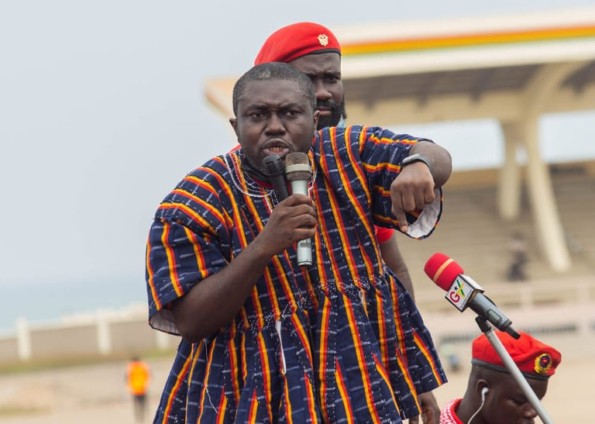
Barker-Vormawor’s frustration reflects a broader sentiment of disillusionment among Ghanaians who feel betrayed by political parties that make grand promises but fail to deliver once in power.
“So far, the President has done well in keeping several of the other promises. Why not this? What has changed? Treat us with respect and come clean on why we are not keeping our promises to the environment. We need answers.”
Osagyefo Mawuse Oliver Barker-Vormawor, Activist
Ghana stands at crossroads in its fight against illegal mining. The continued destruction of the country’s environment will have long-term consequences on agriculture, water security, and public health.
Yet, the response from the state has been inadequate, mired in bureaucracy, corruption, and a lack of political will.
Activists like Raymond Ablorh and Oliver Barker-Vormawor are calling for more than just rhetorical commitments. They demand decisive action, including holding complicit officials accountable, strengthening law enforcement, and ensuring the judiciary plays its role in deterrence rather than enabling offenders.
Until bold steps are taken, the fight against galamsey will remain an uphill battle, and Ghana will continue to suffer the consequences of a leadership that prioritizes personal gain over national interest.
READ ALSO: AU’s Panel of the Wise To Strengthen Peace Efforts In South Sudan

